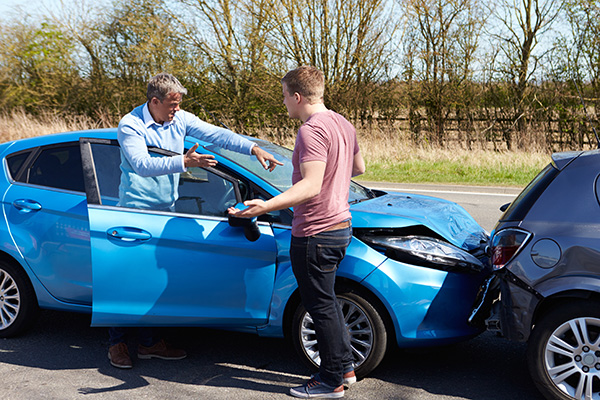
Every driver has experienced it. You're driving along at a safe speed, and suddenly, there's a vehicle right on your rear bumper. Tailgating is not only annoying—it’s a serious safety hazard that significantly increases the risk of a crash. In fact, rear-end collisions are among the most common types of car accidents in the U.S., and tailgating is often to blame.
Even if you consider yourself a careful and experienced driver, you could still find yourself in trouble if someone behind you is following too closely. Likewise, if you’re the one doing the tailgating, intentionally or not, you’re putting yourself and others at risk. Understanding why tailgating happens and how to prevent it can go a long way toward making the roads safer for everyone.
Why Do Drivers Tailgate?
There are many reasons why drivers end up too close to the car in front of them. Sometimes, it’s due to impatience or aggressive behavior. Other times, it's simply inattention or a misunderstanding of what constitutes a safe following distance.
Many drivers underestimate the actual time it takes to stop a vehicle. At 60 miles per hour, your car travels about 88 feet per second. That means if the car ahead slams on the brakes and you're only a few car lengths behind, you may not have enough space to react, even if you’re paying attention.
In poor weather conditions, on slick roads, or in heavy traffic, the risk grows exponentially. Yet tailgating remains a common practice, often caused by people who are rushing or frustrated.
What Makes Tailgating So Dangerous?
The biggest danger of tailgating is the inability to stop in time to avoid a collision. If the driver in front of your brakes suddenly for a hazard, a red light, or a slowing vehicle, you could crash into them. And rear-end collisions can cause significant injuries, even at relatively low speeds.
In addition to physical harm, tailgating can trigger chain-reaction crashes. On a busy highway, one rear-end crash can lead to multiple cars piling up behind it. These incidents can block traffic for hours and lead to serious injuries or fatalities.
Tailgating also tends to escalate road rage. A driver who feels harassed by someone following too closely may brake-check, swerve, or respond aggressively. These reactions only increase the chances of an accident, and sometimes, they turn into dangerous confrontations.
How Much Distance Should You Leave?
The general rule for safe following distance is the “three-second rule.” Pick a fixed point on the road ahead (like a sign or tree) and count how many seconds it takes after the vehicle in front of you passes it until you pass the same point. If it’s less than three seconds, you’re too close.
In bad weather, at night, or when driving at higher speeds, it’s safer to increase that distance to four or five seconds. This gives you more time to react if something unexpected happens.
Using cruise control, especially on highways, can help maintain a consistent and safe gap. Many newer vehicles now come with adaptive cruise control systems that automatically adjust your speed to maintain a safe distance.
If You’re Being Tailgated, Stay Calm
Being tailgated can be stressful, but reacting impulsively only exacerbates the situation. If someone is following too closely, resist the urge to tap your brakes or speed up to “get away.” Instead, stay in your lane and look for an opportunity to safely change lanes or pull over and let the aggressive driver pass.
It’s not a sign of weakness to let someone go ahead. It’s a smart move that could prevent a crash. If the tailgater is clearly aggressive or behaving erratically, avoid eye contact and don’t engage. If necessary, report the behavior once you're safely stopped.
Just Automotive in Williamsburg, IA, Is Committed to Road Safety
Safe driving isn’t just about how you handle your own car. It’s also about understanding how your actions affect others. Tailgating puts everyone at risk—drivers, passengers, and pedestrians alike. By maintaining safe following distances and keeping your cool when someone else drives aggressively, you're helping create a safer driving environment.
If you're concerned about your brakes, tires, or any other system that affects stopping distance, call Just Automotive in Williamsburg, IA, today. Our experienced technicians will inspect your vehicle and make sure you're ready for whatever the road throws your way.